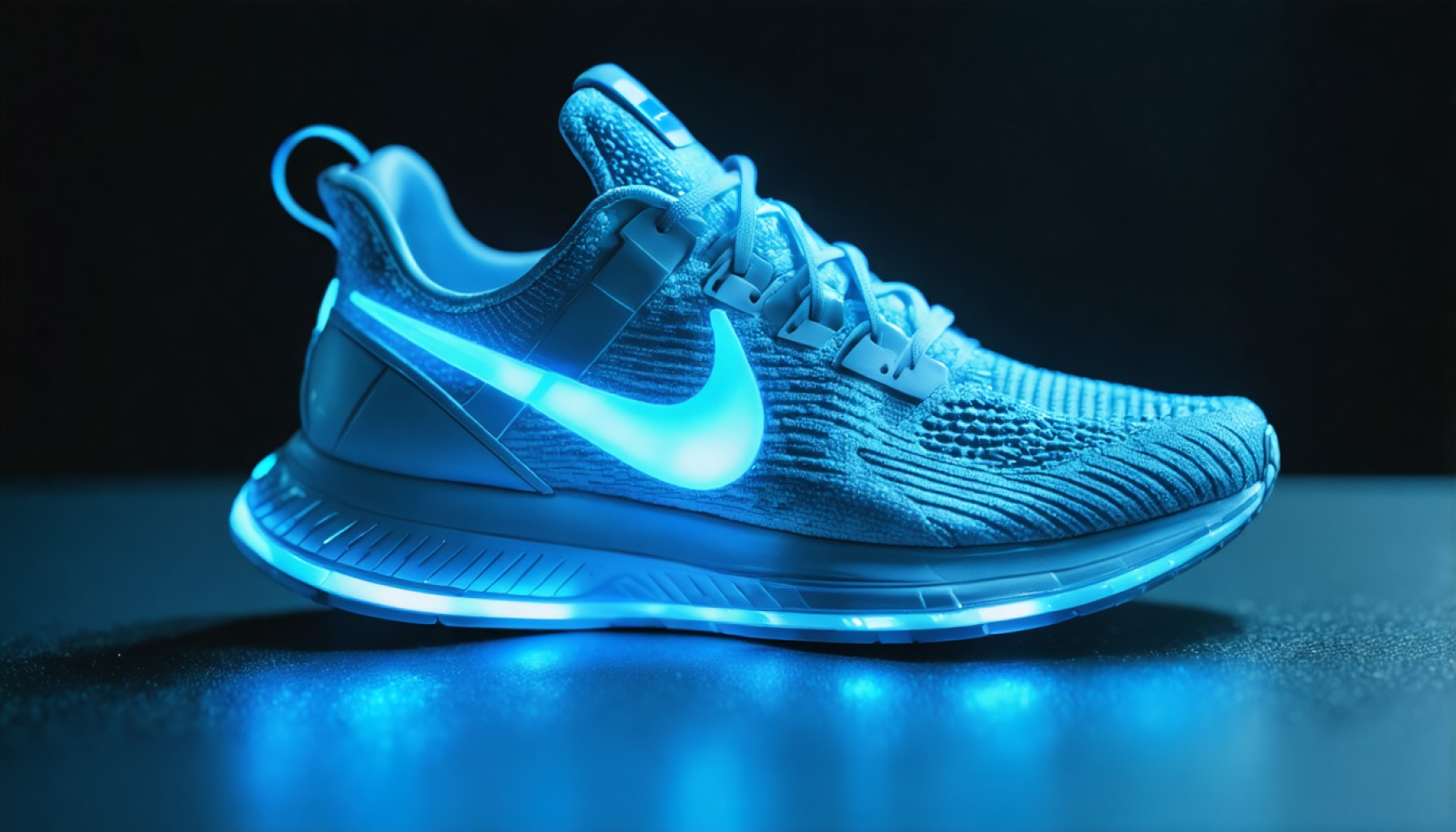- Nike is experiencing a notable stock surge due to strategic technology partnerships focusing on AI and data analytics.
- The company aims to enhance consumer experience through AI-driven personalized shopping and inventory solutions.
- Nike’s initiative is a move to improve efficiency and solidify its place in digital commerce.
- Analysts predict sustained and potentially increased profitability due to this technological shift.
- Through AI, Nike is transforming its supply chain to better meet consumer demands.
- These advancements position Nike as a leader in integrating technology with sportswear.
- Nike’s efforts may redefine market leadership at the intersection of sportswear and technology.
In a surprising twist, Nike (NKE) stock has recently experienced a marked surge, thanks to strategic advancements in technology-driven partnerships. Traditionally known for its prowess in sportswear, the company is now making a name for itself in innovative collaborations, particularly in the realm of Artificial Intelligence and data analytics.
The latest buzz surrounding Nike’s adoption of cutting-edge technology underscores its commitment to integrating AI for enhanced consumer insights. Nike’s partnership with leading tech firms aims to revolutionize customer experience by providing hyper-personalized shopping recommendations and inventory management solutions. These collaborations are not just a play for improved efficiency but also a strategic maneuver to dominate the digital commerce landscape.
Analysts suggest that this technological pivot is likely to sustain and potentially boost the company’s profitability. By harnessing AI, Nike is not only enhancing operational efficiency but also transforming its supply chain to be more responsive to consumer demands. This evolution positions Nike as a forerunner in using digital transformation to meet the evolving expectations of a tech-savvy consumer base.
As investors look towards the future, the question remains: Could this be the beginning of an era where the intersection of sportswear and technology defines market leadership? With its AI-powered initiatives, Nike is not just changing the game—it’s setting new rules for the retail industry at large.
How Nike’s Tech Revolution is Rewriting the Playbook in Retail
Pros and Cons of Nike’s AI-Driven Strategy
Pros:
1. Enhanced Customer Experience: Nike’s use of AI to offer hyper-personalized shopping experiences results in higher customer satisfaction and loyalty.
2. Efficient Inventory Management: AI helps optimize Nike’s inventory, reducing overstock and stockouts, thus increasing sales and profitability.
3. Market Leadership: By integrating cutting-edge technology, Nike solidifies its position as a leader in both the sportswear and tech-driven retail industries.
Cons:
1. High Investment Costs: Implementing AI technologies involves significant upfront costs that may not show immediate ROI.
2. Data Privacy Concerns: The use of consumer data for personalization raises concerns about data security and privacy compliance.
3. Technological Dependence: Overreliance on AI could lead to vulnerabilities if systems malfunction or become outdated.
Market Forecast for Nike’s Tech-Enhanced Growth
The market forecast for Nike’s growth looks promising due to its strategic focus on AI and digital innovation. Analysts predict a steady increase in both revenue and market share as more consumers embrace Nike’s tech-enhanced shopping experiences. According to recent reports, the global AI in retail market is expected to grow rapidly, providing a lucrative opportunity for Nike to capitalize on these advancements.
Predictions for Nike’s Future Path
With AI and digital transformation at its core, Nike is expected to continue its trajectory toward increased operational efficiency and consumer engagement. The company is likely to explore further innovations in wearable technology and virtual reality, aligning with tech trends and consumer preferences. This innovation path might also lead Nike to experiment with blockchain for secure and transparent supply chain management.
Key Related Questions
1. How is Nike leveraging AI to transform its retail strategy?
Nike leverages AI to personalize customer experiences and optimize operations. By using advanced predictive analytics and machine learning algorithms, Nike tailors product recommendations and streamlines its inventory processes. This enhances consumer engagement and boosts sales efficiency.
2. What are the potential risks involved with Nike’s reliance on technology?
The primary risks include high implementation costs, potential data privacy issues, and over-dependence on technology that could result in disruptions if technical failures occur. Nike must ensure robust cybersecurity measures and remain agile to keep pace with evolving tech landscapes.
3. What are the long-term benefits of Nike’s tech-driven endeavors?
Long-term benefits include maintaining market leadership, improved consumer insights leading to better product offerings, and a resilient supply chain capable of adapting to changes in consumer demand. This strategic focus also positions Nike as an industry trailblazer in the convergence of technology and retail.
For more information on Nike’s recent endeavors and business strategies, visit the official Nike website.









